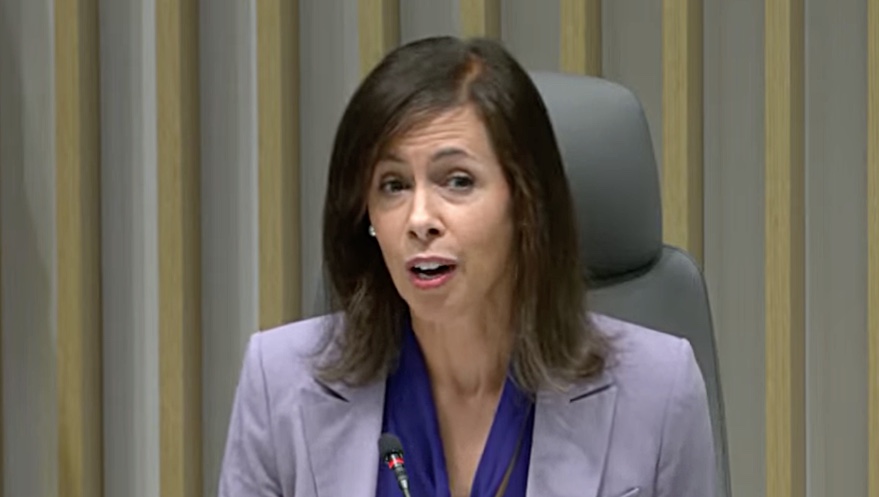KIHEI, Hawaii — The Federal Communications Commission adopted a new rule Sept. 29 that will shorten the time for satellite operators to deorbit low Earth orbit satellites from 25 to 5 years.
Commissioners voted 4-0 to adopt the draft rule, published earlier this month, intended to address growing debris in LEO. Under the new rule, spacecraft that end their lives in orbits at altitudes of 2,000 kilometers or below will have to deorbit as soon as practicable and no more than five years after the end of their mission. The rule would apply to satellites launched two years after the order is adopted, and include both U.S.-licensed satellites as well as those licensed by other jurisdictions but seeking U.S. market access.
The rule replaces a longstanding guideline that called for deorbiting satellites up to 25 years after the end of their mission. “Twenty-five years is a long time. There is no reason to wait that long anymore, especially in low Earth orbit,” Jessica Rosenworcel, FCC chairwoman, said at the meeting.
She and other commissioners cited the growth of both satellites and debris in LEO, and projections of potentially tens of thousands of satellites to be launched in the next decade, as driving the need for the reduced post-mission disposal timeframe. “It will mean more accountability and less risk of collision that increase orbital debris and the likelihood of space communications failures,” Rosenworcel said.
Other commissioners offered similar arguments in support of the rule. “Most new systems in LEO don’t need 25 years for that post-mission disposal,” said Geoffrey Starks. “With this order, we do take that practical step of reducing the demise times in LEO to no more than five years, a timeframe that is readily achievable. Compliance will be the new rule here to bend the curve of debris proliferation.”
Commissioners did not mention a letter from the bipartisan leadership of the House Science Committee Sept. 27 calling on the FCC to delay consideration of the rule, citing questions about the FCC’s authority to regulate orbital debris and concerns about a lack of coordination with other agencies.
“I’ve long expressed a little bit of skepticism about the FCC going alone here,” said Brendan Carr. “We need to make sure we’re leaning on the expertise of other agencies that do, in fact, have a cadre of rocket scientists to help inform this. I hope that we do that here.” Despite that skepticism, he said he supported the rule.
“I continue to believe that the FCC must work collaboratively throughout the government, but we must leverage our collective expertise here as well,” Starks said. “We are right to move ahead.”
Another commissioner, Nathan Simington, saw the rule as an opportunity to set a de facto global standard. “We have, through the option of extending our orbital debris rules to any who seek U.S. market access, a regulatory hook for creating a default rulebook for commercial operators globally,” he said. “That’s a powerful, even irresistible, incentive.”
He added that he hoped that technologies like active debris removal or close cooperation among operators to avoid collisions could turn the five-year rule into “a largely unused backstop” but that the FCC could not count on it. “We can’t bet exclusively on that. Hope is not a plan.”
